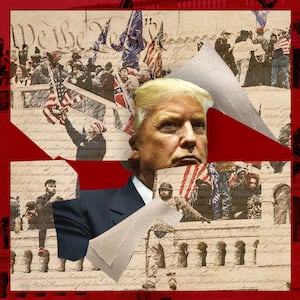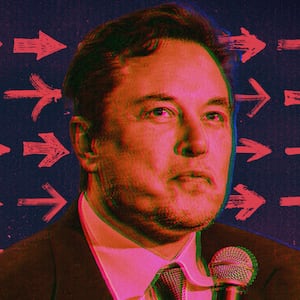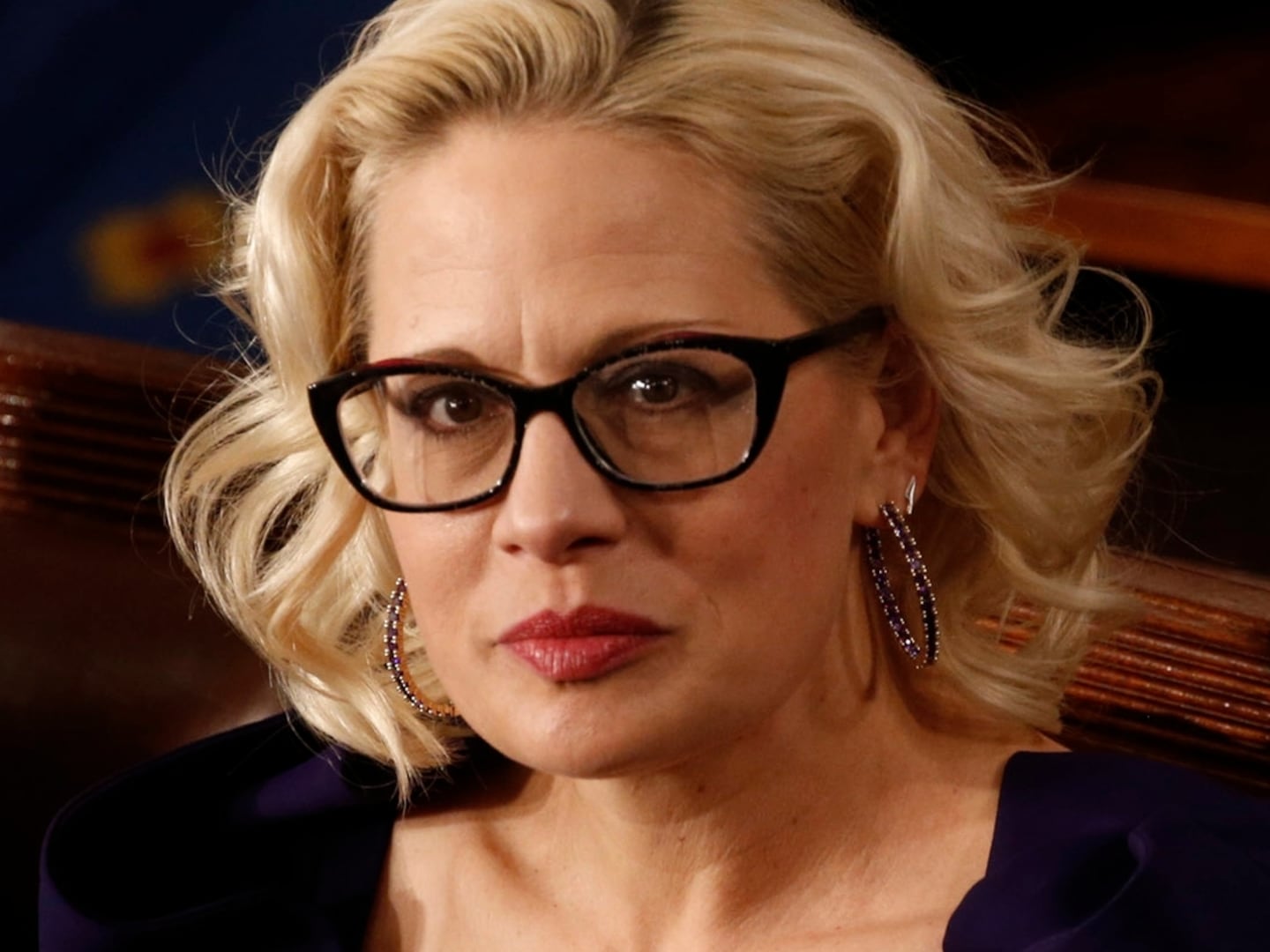It’s the most wonderful time of year… for snowflakes. While Florida Gov. Ron DeSantis might be supplanting former President Donald Trump in the GOP, all anyone can talk about is the man replacing Trump as Twitter’s troll-in-chief. That would be yet another hypocritical, thin-skinned billionaire: Elon Musk.
Musk subscribes to the new right’s facts-don’t-care-about-your-feelings philosophy. That is, until someone calls him on his bullshit and forces him to play by his own rules. Then, he clutches his pearls and whines that people are being mean to him and that it’s the death of Western civilization as we know it. Sound familiar?
This week, Musk banned and threatened to sue a 20-year-old college student who runs the Twitter feed @elonjet—a feed using publicly available information to track Musk’s jet. (Musk supporters have argued that because he uses a Privacy ICAO Address—also known as a PIA—to disguise his plane’s identifying information, that the information is not public. Others have countered that the information isn’t truly “private,” but rather, “still public, just harder to obtain.”)
Next, Musk ordered a seven-day Twitter suspension for several prominent journalists from outlets including CNN, The Washington Post, and The New York Times who merely linked to the feed. When several of these journos gathered on a Twitter Spaces event on Thursday night, Musk showed up there for a few minutes of brief (and unsatisfying) debate with the very journalists he had just suspended. After Musk left the conversation, the Twitter Spaces replay was unavailable. (Musk blamed a “Legacy bug.”)
The suspension of journalists for revenge purposes would be a big story in and of itself. But this is merely the latest chapter in a larger horror story.
Musk’s behavior must be viewed in the context of his harsh criticism of the previous Twitter regime—their suspension of Trump (and others), “shadow banning” some right-wing figures, and suppressing the New York Post’s article about Hunter Biden’s laptop. But if the old guard were abusing their authority to advance a progressive political worldview, Musk seems to be using his to advance his own personal interests (again, sound familiar?).
In recent weeks, Musk has given the old regime’s “Twitter Files” to hand-picked journalists, in an effort to expose (among other things) how the company previously sought to limit the Hunter Biden laptop story’s reach, ostensibly under the guise that it might be Russian misinformation. While Musk is keen on exposing Twitter’s decision-making process as it pertained to Hunter Biden, one imagines he will not be equally transparent when it comes to exposing how Twitter decided to suspend these journalists.
As The Daily Beast’s opinion editor Anthony Fisher put it, “Tonight would be a great time to drop TWITTER FILES PART SIX, where Elon's hand-picked reporters release Elon Twitter's internal communications over the past 48 hours—as rules were made up on the fly and accounts were suspended under dubious pretexts.”
Don’t hold your breath, Anthony.
Prior to taking over the platform, Musk and the new right were highly critical of Twitter’s heavy-handed and seemingly biased attempts at content moderation—some of these criticisms are no doubt valid. But Musk’s missteps have demonstrated how difficult it is to police a platform as large and diverse as Twitter, as well as define the limits of free speech absolutism.
After temporarily rolling out a new Twitter Blue subscription service (effectively allowing anyone to buy a blue check that was previously synonymous with “verification”—for $8), a spate of trolls began impersonating celebs—including Musk. One of the imposters, comedian Kathy Griffin, was promptly suspended. Twitter promptly rolled back the $8 verification plan.
Next, Musk suspended Kanye West for tweeting an image of a swastika.
It’s easy for Musk and others to criticize old Twitter for suspending or “throttling” accounts and otherwise burying stories they deemed sketchy. But as Musk has learned, it’s much harder when you actually run a company charged with balancing moderation and free speech. As journalist Matthew Yglesias put it, since taking over, “Musk’s own preferred approach to content moderation is specifically to throttle disfavored accounts, exactly what Old Regime Twitter did.”
Musk’s rules seem utterly inconsistent. For example, Musk said it was a “grave mistake” for Twitter to ban Donald Trump, a man who had just used Twitter’s platform to incite a riot, if not, an insurrection, at the U.S. Capitol. (Even if you ignore Trump’s speech telling his supporters to go to the Capitol, Trump used Twitter to summon supporters to come to D.C. for a “wild” protest, and then invoke the gathering masses in a veiled Twitter threat against Republicans who wanted to certify the 2020 election.)
But when he banned Kanye, Musk said the rapper “violated our rule against incitement to violence.”
Now, let’s be clear: I’m no fan of anyone tweeting images of swastikas. But as far as I know, Kanye’s tweet didn’t (as of now) inspire any violence. Meanwhile, Trump literally used Twitter to incite violence.
Of course, Musk justifies banning these journalists on the notion that they have “doxxed him.” This term (like the term “groomer”) seems to have evolved to apply selectively. According to Merriam-Webster, doxxing means to “publicly identify or publish private information about (someone) especially as a form of punishment or revenge.”
If someone published the address of his kids’ preschool, I would support banning them and pursuing legal action. But banning journalists who are linking to publicly available information seems, I don’t know, authoritarian.
According to Musk, “Any account doxxing real-time location info of anyone will be suspended, as it is a physical safety violation. This includes posting links to sites with real-time location info.” But what if I saw Musk at a public event and tweeted a picture of him? By his definition, that would seem to qualify as doxxing.
Regardless, Musk’s recent comedy of errors constitute one “self-own” after another, each revealing new levels of incompetence, thin-skinned egotism, and hypocrisy. No two snowflakes are identical, but Elon Musk is very much like Donald Trump.
How did we end up with snowflakes such as these in our political hellscape?







